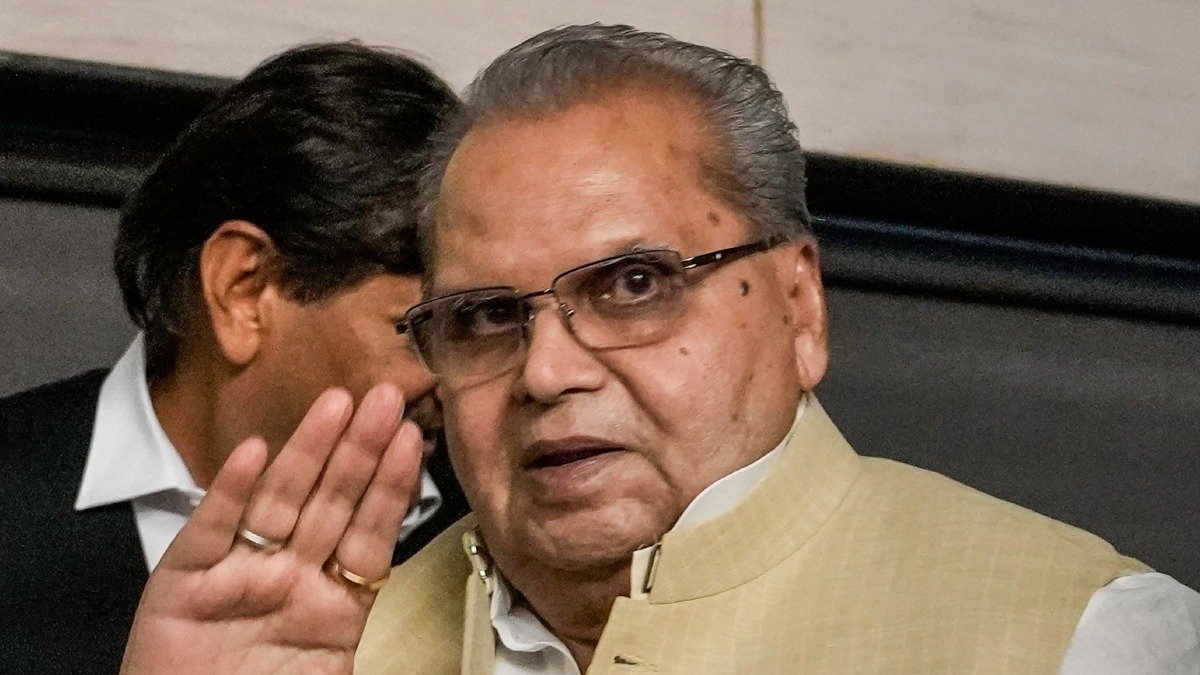Satyapal Malik, Born in Hisawda village of Baghpat (then part of Meerut), Malik’s leadership spark lit up early. In 1969, at just 21, he made history as the first directly elected student union president of Meerut College, a landmark moment that charted the course of his political future.
Before that, student body heads were nominated rather than elected. But the winds of change began in 1965–66 when Malik became the first nominated “premier.” When student elections were abruptly stopped in 1967, Malik led a massive agitation that reached the gates of the Uttar Pradesh Assembly in Lucknow, where students courted arrest. That movement pressured authorities to reinstate direct elections, which Malik won.
He earned his B.Sc. and LLB from Meerut College, which became the crucible of his political grooming. During the Emergency, he and his allies, including Jagat Singh and Vedpal Singh, faced jail time for their activism—each sent to separate jails due to their influence.
But Malik’s political roots run deeper than most recall. His first brush with public attention came during the “Remove English, Promote Hindi” movement in 1965–66, when he was injured in a police lathi charge. His protest leadership sparked public fury—even leading to a local post office being set on fire.
His growing clout brought him into the orbit of former Prime Minister Chaudhary Charan Singh, who later described Malik as his “political heir.” Malik joined the Bharatiya Lok Dal, won an MLA seat from Baghpat in 1974, served in both Houses of Parliament, and held a Union ministry post.
He later joined the BJP and served as governor under its government. Even during the infamous 1973 Lata Gupta abduction case in Meerut, Malik led powerful student protests that forced a curfew in the city—underlining his fearless activism. Standing on the very soil that birthed his career, he proudly declared the college his “political nursery.”
Hisawda Mourns Its Hero
In Hisawda, news of his death cast a long shadow of grief. Malik’s 300-year-old ancestral haveli became a place of remembrance, as villagers spoke of a leader who never lost touch with his roots.
“He was always humble a grounded man despite the big posts he held,” said Virender Singh Malik, an elder who shared a long-standing bond with him. “As a child, he was quiet and respectful and even loved playing volleyball.”
Though his immediate family moved away, Malik remained emotionally connected to Hisawda. His last visit in 2023 after retirement was heartfelt. Walking its dusty lanes, he said, “Yeh mitti meri taqat hai”—a ”line that echoed his lifelong connection to his birthplace.
Family members remember him as soft-spoken, disciplined, and deeply attached to his roots. Amit Malik, his nephew, recalled how Satyapal cycled several kilometers to attend school and college, inspiring an entire generation in the village.
His cousin Gyanendra Malik recalled a village gathering (chaupal) held in his honour during his last visit, where Satyapal reaffirmed his commitment to the common man, farmers, and labourers. Even as governor, he remained a voice of dissent when needed specially admired for speaking truth to power during sensitive times.
A Voice That Won’t Be Forgotten
He inaugurated the new history department building and fondly referred to the college as the place where his political journey took root, calling it his “political nursery.” He was a man who never let power erode his principles, who rose from dusty student protests to the highest constitutional offices and yet always came back home.



